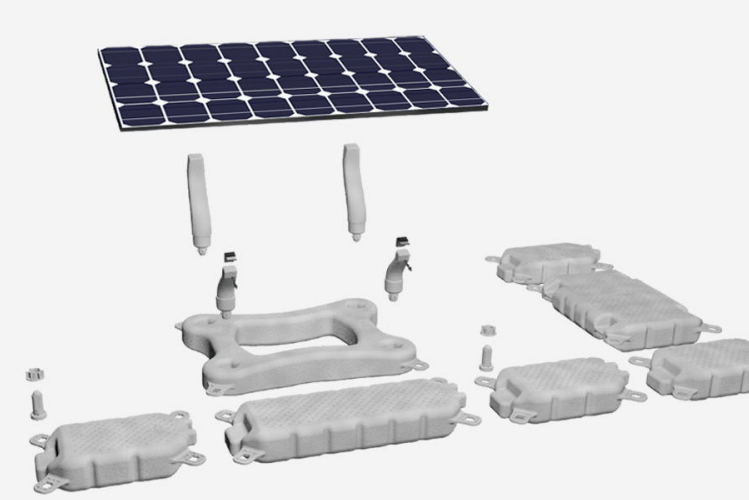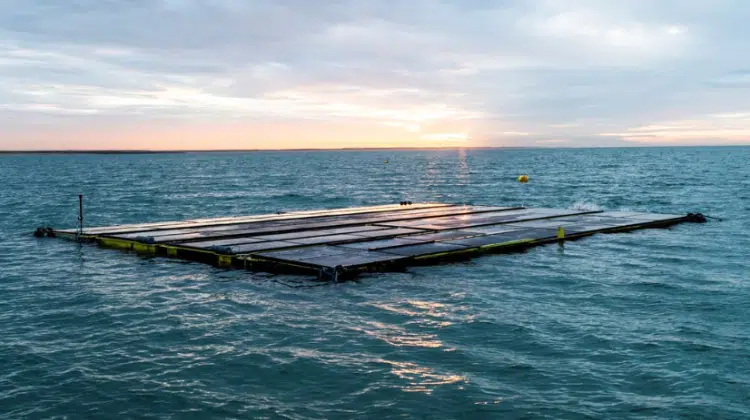Address
304 North Cardinal
St. Dorchester Center, MA 02124
Work Hours
Monday to Friday: 7AM - 7PM
Weekend: 10AM - 5PM
Address
304 North Cardinal
St. Dorchester Center, MA 02124
Work Hours
Monday to Friday: 7AM - 7PM
Weekend: 10AM - 5PM

Recently, the Norwegian classification society DNV has issued a statement of compliance to the Dutch floating solar company Oceans of Energy for its offshore solar solution, which allows it to deploy floating solar systems in harsh sea conditions such as the North Sea.

This endorsement not only validates the viability of offshore solar, but also opens a clear path for its future scalability, a major milestone in the development of energy marine technology.Wanhos Floating Solar Panel System Mounting Brackets are made of high quality material to ensure the performance, which is designed for water photovoltaic power plants.
The Statement of Conformance validates that the design approach meets the comprehensive set of requirements and guidelines provided by DNV’s Recommended Protocol for the Design, Development, Operation and Decommissioning of Floating Solar Photovoltaic (FPV) Systems (DNV-RP-0584), which is the world’s first of its kind to be published in 2021.
In order to reach a 150MW scale offshore solar farm system by 2028, Ocean Energy sought independent validation of its technology and system design and contracted DNV to first submit the above Statement of Conformance and, at a later stage, to prototype its second-generation offshore solar power plant design to cope with the harsh conditions of the North Sea, such as those realized in the current lead frequency.
The North Sea II unit will operate at 400kW and will be expanded to 1MW next year.North Sea III is expected to reach multi-MW system sizes, with follow-on projects expected to reach tens of megawatts, with even greater ambitions for the future.
DNV’s conformance statement confirms that Ocean Energy’s design basis meets the requirements of DNV-RP-0584 for certain operational constraints, thus providing critical risk reduction for North Sea Two and the upcoming solar farms within the offshore wind farm.

This independent confirmation of its technology and system design basis allows Energy Ocean to expand in a safe and reliable manner.
Ditlev Engel, CEO of DNV Energy Systems, said, “This validation is of global relevance as the deployment and scale of offshore solar technology is critical to addressing the global climate challenge. Our partnership will not only drive the energy transition of offshore solar in Europe, especially in the North Sea region, but will also serve as a model for global implementation.”
Allard van Hoeken, CEO of Ocean Energy, added: “Ocean Energy is proud to be a pioneer. Not only do we have a unique four-year global experience of offshore operations and first commercial projects including the Crosswind ‘Hollandse Kust Noord’ wind farm, but we are also driving a larger stakeholder agenda that will benefit the entire offshore energy industry. “
“Integrating offshore solar into offshore wind projects can increase the energy generated per square kilometer of sea area per year by a factor of five and can be integrated into the power infrastructure of offshore wind farms. Together with DNV, we are applying best practices to get future large-scale projects certified, which will enable investments related to the expansion of our new energy generation sector.”
Validation and certification are vital to attracting the necessary investment to scale up, and as the first offshore solar design basis in the EU to receive a declaration of conformity, the Energy Ocean System demonstrates the viability of key aspects of solar technology in harsh environmental conditions, such as in the North Sea, and lays the groundwork for future advances.
The North Sea, with its enormous potential for energy production, is destined to become Europe’s power plant, and the project plays a role in realizing the ambitious goals set for the region in the Esbjerg and Ostend Declarations.
Furthermore, as announced by Rob Jetten, Minister of Climate and Energy, it is in line with the Dutch commitment to reduce CO2 emissions by at least 55% by 2030. The Dutch government has recognized the importance of offshore solar and has announced an ambition to install 3GW of solar by 2030, the size of 3,000 soccer fields.